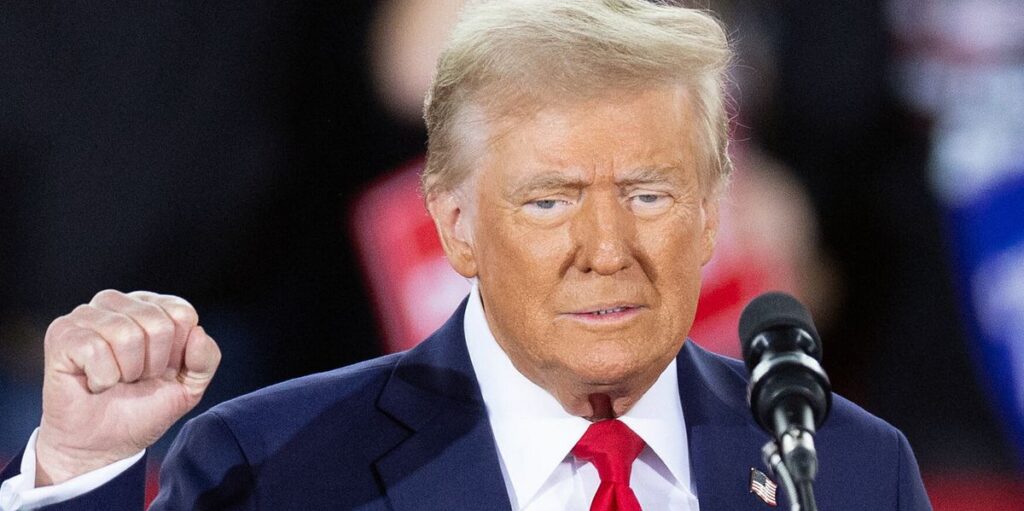Donald Trump delivered what he mentioned could be his final campaign rally in North Carolina at J.S. Dorton Arena. Arriving 40 minutes late, he acknowledged the gravity of the moment, noting that his appearances in the state would cease after that day. This realization prompted him to reflect on the significance of their time together and the journey they had shared. While he expressed excitement for future prospects, he also conveyed a sense of finality, suggesting that the rally was a quintessential culmination of his campaign efforts. His comments hinted at both a personal and political transition as he pondered the day’s events.
Upon taking the stage, Trump faced a noticeably subdued crowd, with reports indicating a lower-than-expected turnout. The contrast to his previous rally experiences was stark, drawing attention to his waning draw as the election approached. Observers noted empty seats in the venue, leading to discussions about the dwindling enthusiasm that had characterized his previous appearances over the past nine years. As he addressed the attendees, he mentioned his past performances and the excitement of his rallies, pushing to create a hopeful narrative looking toward election day.
Transitioning from his reflections to prepared remarks, Trump underscored the stakes of the upcoming election. He invoked American patriotism, emphasizing unity and a shared mission to restore the nation’s promise. According to Trump, the impending election held monumental importance, declaring November 5 as a pivotal date for the future of the country. With grand aspirations for a “great” America, he sought to rally support by framing the election as a turning point for the nation.
Trump’s rhetoric simultaneously tackled themes of resilience and defiance. He reiterated a commitment to fight against what he described as challenges faced during his previous term, vowing to “never, ever surrender.” His language was combative, energizing his base while hinting at darker undertones regarding potential unrest if the election did not yield favorable results. The reaffirmation of his determination to prevail showcased an ongoing battle against what he perceives as systemic issues threatening American values.
As he concluded his address, Trump’s remarks resonated with the audience as he called for collective action in their quest for victory. The emphasis on victory was not merely political but implied a fight for the nation’s very essence and future direction. His persistent emphasis on unity conveyed a message of inclusiveness among his followers, fostering a sense of belonging as they geared up for election day. However, the evident decline in rally attendance painted a contrasting image of the enthusiasm levels among supporters.
In summary, Trump’s final rally in North Carolina encapsulated his campaign’s narrative of fighting for the country’s future while confronting the present challenges of diminishing crowd sizes. With a mix of nostalgia and anticipation, he sought to galvanize support, stressing the critical nature of the election and unifying his base through calls for action and perseverance. Despite the underwhelming turnout, Trump’s determination to portray a hopeful future persisted, aiming to solidify loyalty among his followers as they approached the crucial vote.

